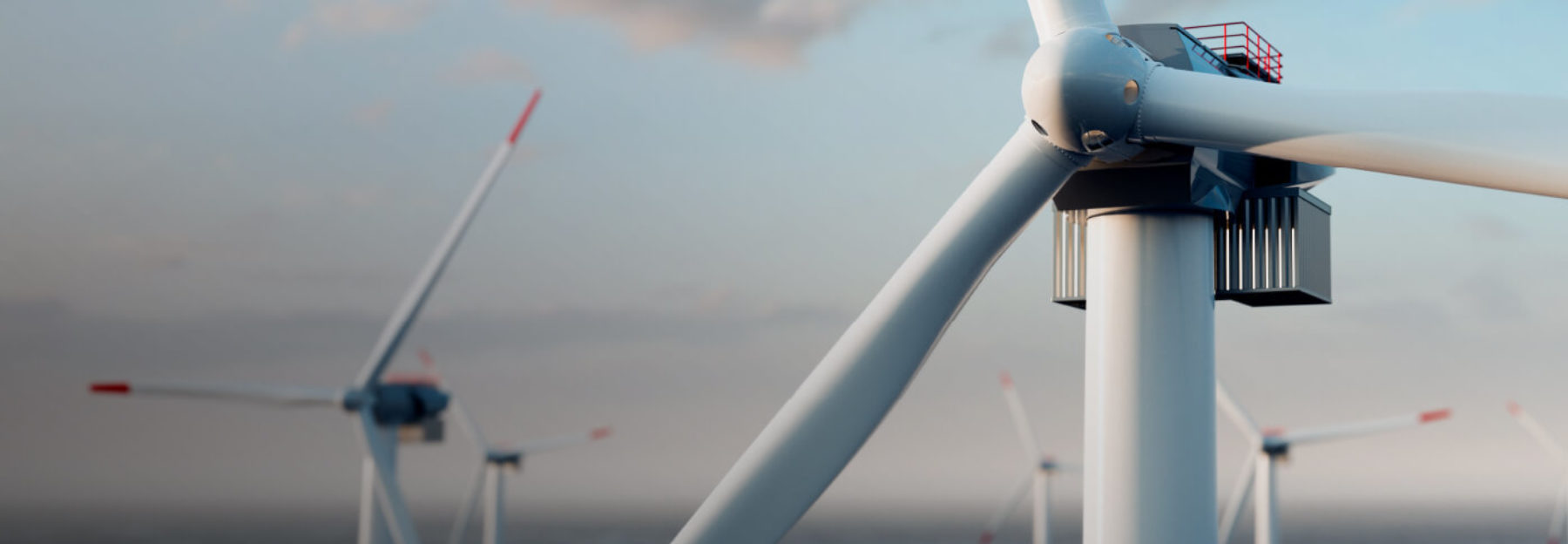The Energy Industry Transition: Shifting Demand in the Digital Workforce
26 June 2023 — E&P Consulting

Introduction
Now is a sensational era to be in the energy industry and contributing to the energy transition whilst shaping the future of energy. As the energy transition is on its way, there is a natural transition and use for talent in the digital world in the oil and gas industry that can be transferable to renewables. This paper will explore what skillsets are welcome and desirable in the energy transition and for both sides of the transition spectrum, as the oil and gas industry will not disappear overnight, and the push to move into renewables is a reality. There are more common areas than not where domain consultants will have a significant role to play in both worlds.
At E&P, our core business strategy has been predicated on bringing the talent and expertise for the oil & gas Industry, where we have successfully positioned ourselves as a partner that our clients count on. At the same time, we have recognised early on the transition to renewable energy. Thus, we have invested in setting up a focused practice in this area and are well-positioned to find the best opportunities for our consultants to add value through their know-how and expertise in the common areas of operation, and those specifically catered to each one.
Part 1. From Old to New, from traditional hydrocarbon to renewable energy.
a. “The Traditional” oil business and its contributions to society
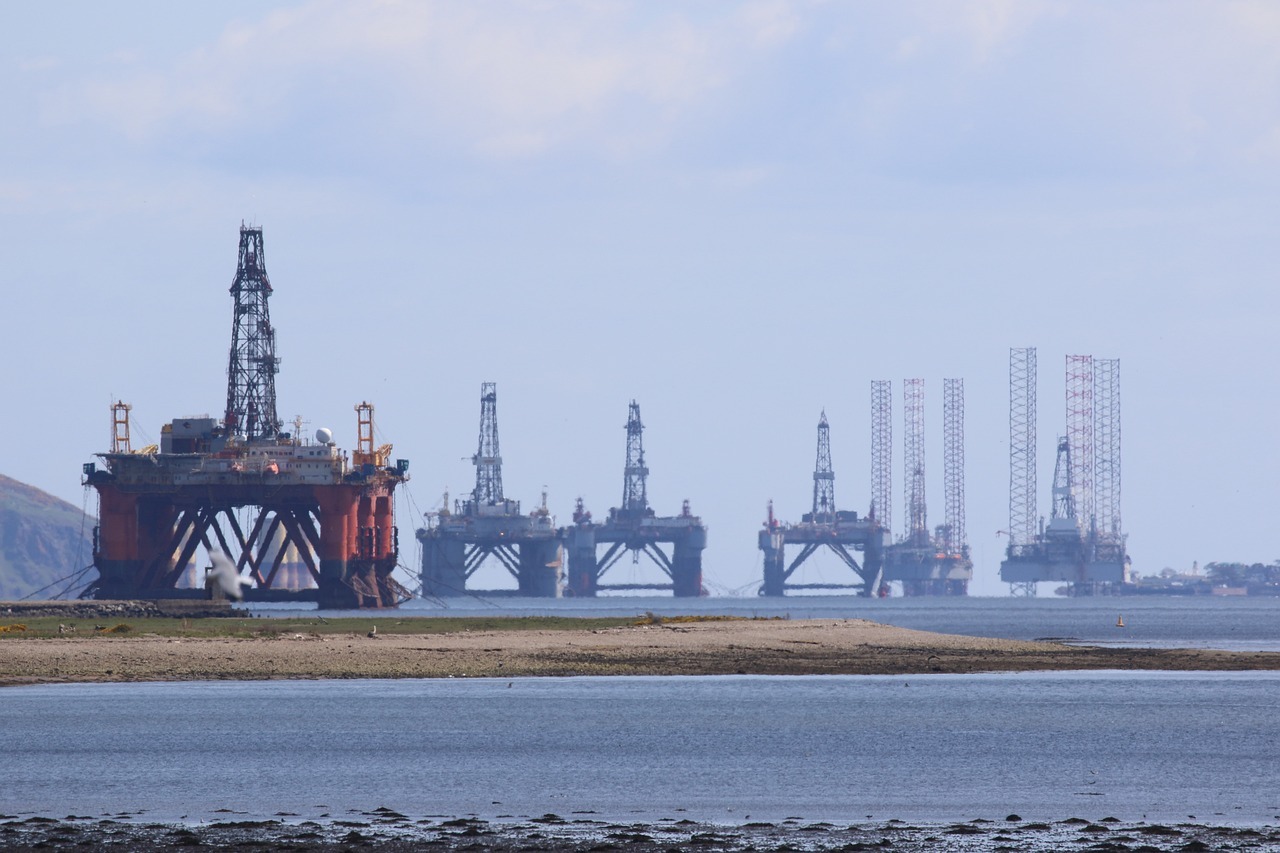
The oil and gas industry has made significant contributions to communities over the years; It has played a crucial role in meeting the world's energy demands, providing the primary energy source for transportation, heating, and electricity generation. This has powered economic growth, improved living standards, and enhanced productivity globally.
Technological advancements in exploration, extraction, refining, and distribution have also occurred. These innovations have improved efficiency and safety within the industry and have had broader applications in other sectors. For example, technologies developed for oil drilling have been adapted for deep-sea exploration and geothermal energy extraction.
However, despite the global demand for this important commodity, the oil and gas industry has had negative impacts and continued associated challenges, such as greenhouse gas emissions contributing to climate change, air pollution, and environmental degradation. The environmental consequences and the need to transition to cleaner and sustainable energy sources is prompting a shift towards renewable energy alternatives.
b. Renewable energy: Intent and expected impact
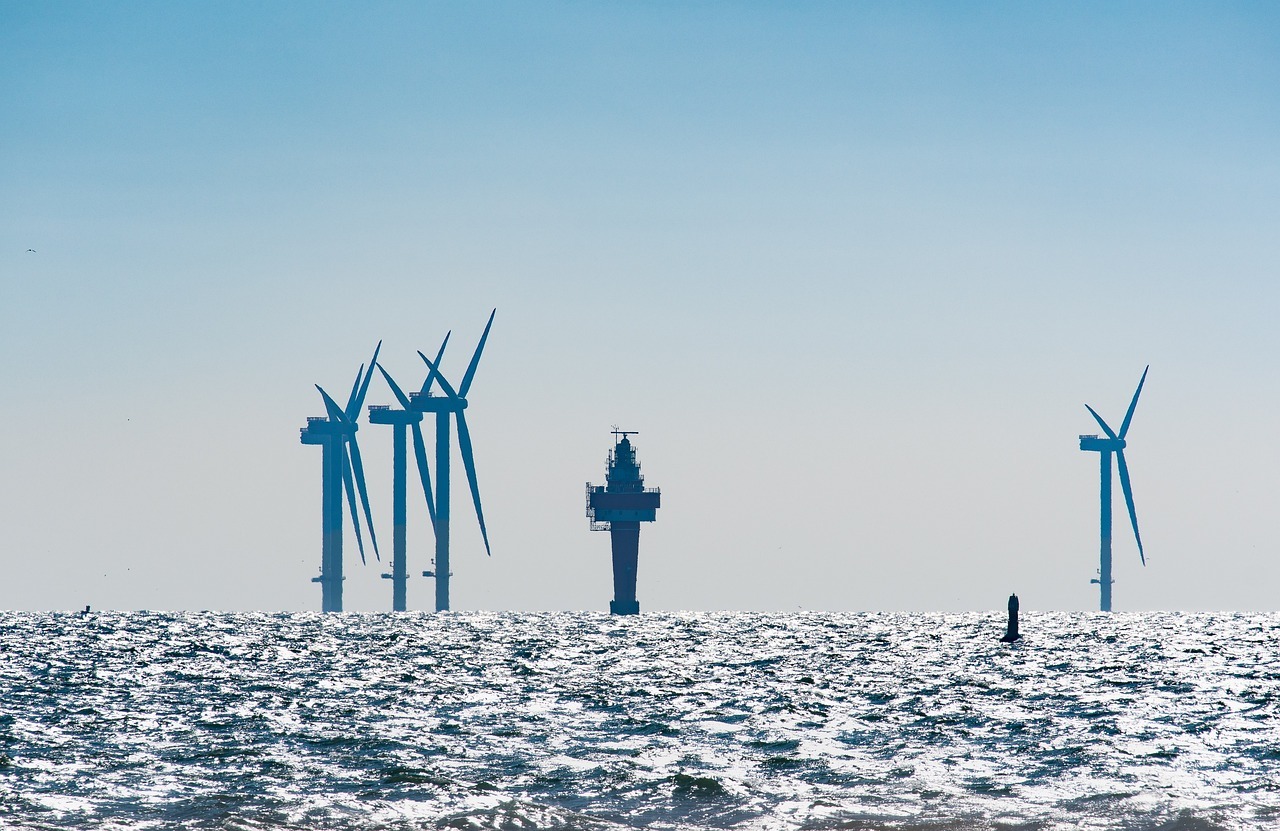
Renewable energy is derived from naturally replenished sources, such as sunlight, wind, water (hydroelectric), geothermal heat, and biomass. Promoting renewable energy aims to reduce our dependence on hydrocarbon fuel resources and the associated environmental impact of their extraction and use. Solar and wind power, for example, have minimal water consumption and do not produce air pollutants or hazardous waste. If implemented sustainably, hydropower can provide a clean energy source with minimal emissions.
Relying on renewable energy sources enhances energy security by diversifying our energy mix; renewable energy sources are more widely distributed globally. This diversification reduces vulnerability to geopolitical tensions, price fluctuations, and supply disruptions, promoting a more stable and secure energy future.
The transition to renewable energy requires ongoing technological innovation, driving advancements in energy storage, grid integration, and smart grid technologies. This innovation can spill over into other sectors and foster technological advances, improving overall competitiveness and driving economic benefits beyond the energy industry.
c. Timeline of the shifting
Short-Term

Many countries have set targets to increase their renewable energy capacity in the short term. This involves expanding the deployment of solar, wind, and other renewable energy technologies through government incentives, subsidies, and supportive policies. According to the IEA (International Energy Agency), global clean energy investment has risen to more than USD 1.7 trillion in 2022 and even more so in 2023. For every USD 1 spent on fossil fuels, USD 1.7 is now spent on clean energy compared to 1:1 just five years ago.
Mid-Term
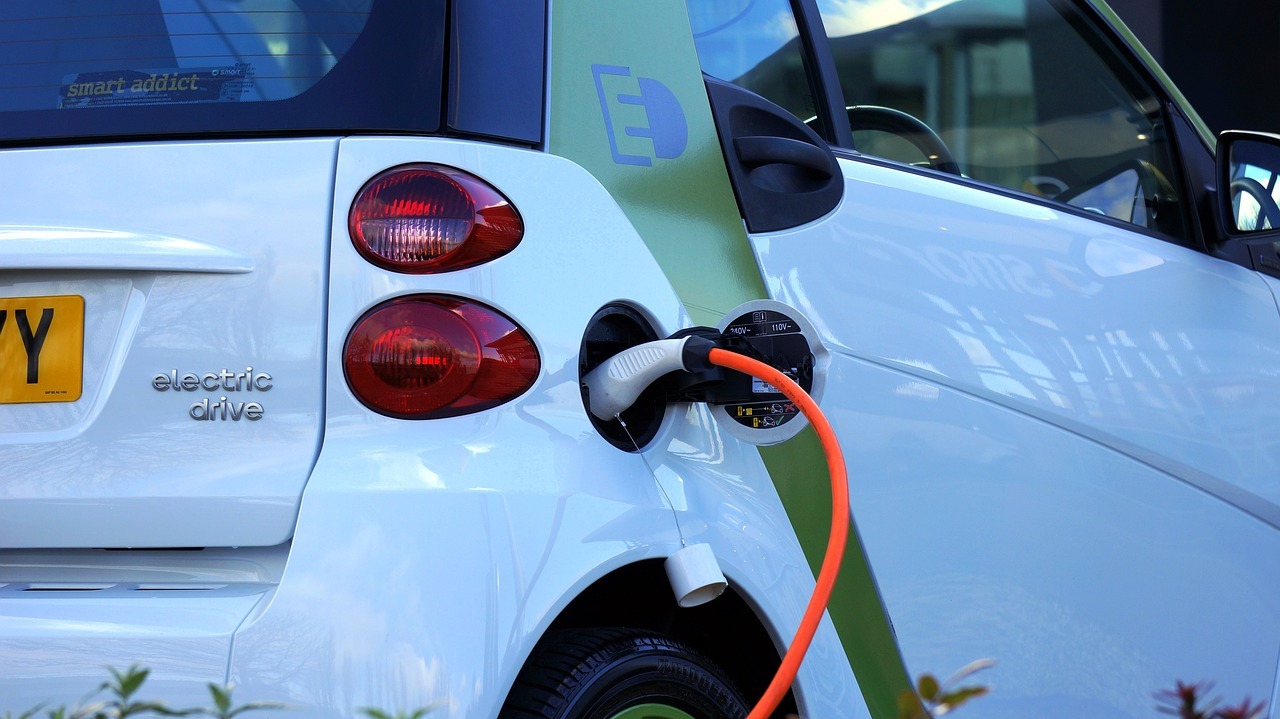
The share of renewable energy in the global energy mix is expected to grow significantly; as per the IEA, renewables are forecasted to account for over 90% of global electricity capacity expansion over the 2021-2027 period. Renewable energy sources like solar and wind power are becoming more cost-competitive with hydrocarbon fuels, making them attractive options for power generation. Energy storage technologies, such as batteries, are crucial for managing the intermittent nature of renewable energy sources.
Long-Term
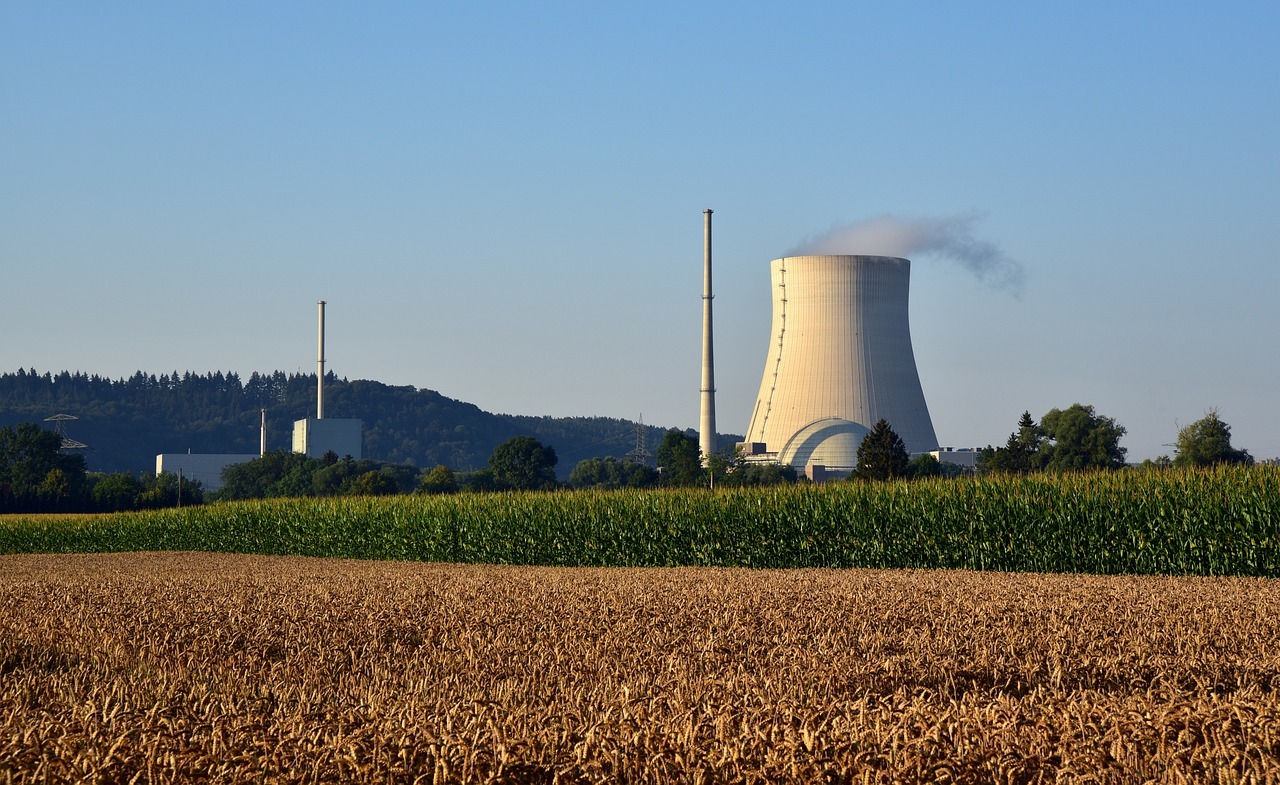
The long-term goal is a near-complete transition from hydrocarbon fuels to renewable energy sources. This involves phasing out the remaining hydrocarbon fuel infrastructure and replacing it with renewable energy systems. Emerging technologies like advanced nuclear power, hydrogen fuel cells, and fusion energy could play a role in the long-term transition.
Part 2. Shift to Renewables and its effect on their digital workforce
a. The differences in the digital mindset between the two colliding worlds
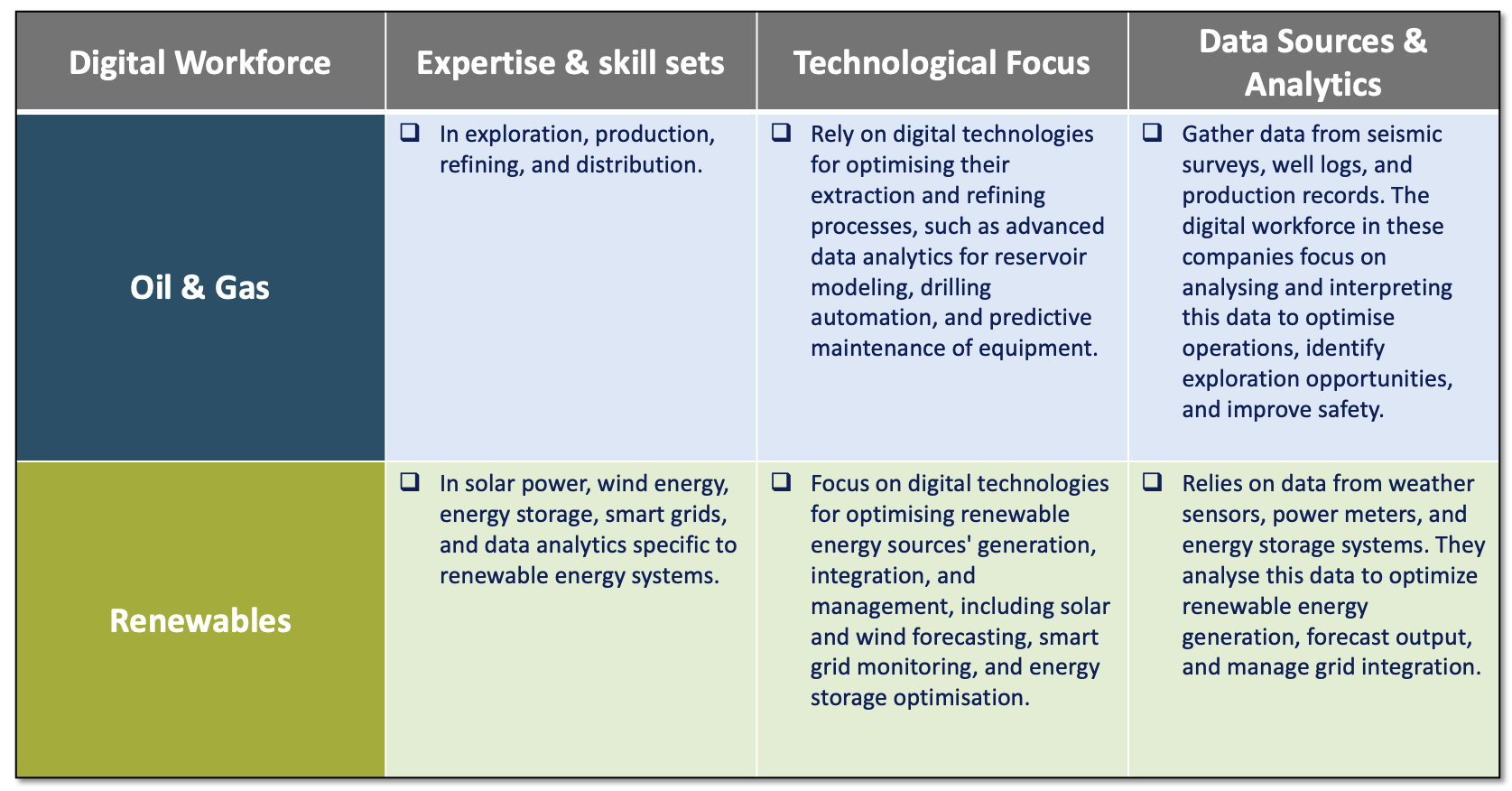
b. Key effects of the change to the digital workforce and what digital skills will be in demand in the near future
The transition of energy companies into renewables can significantly impact their digital workforce. Here are some critical effects:
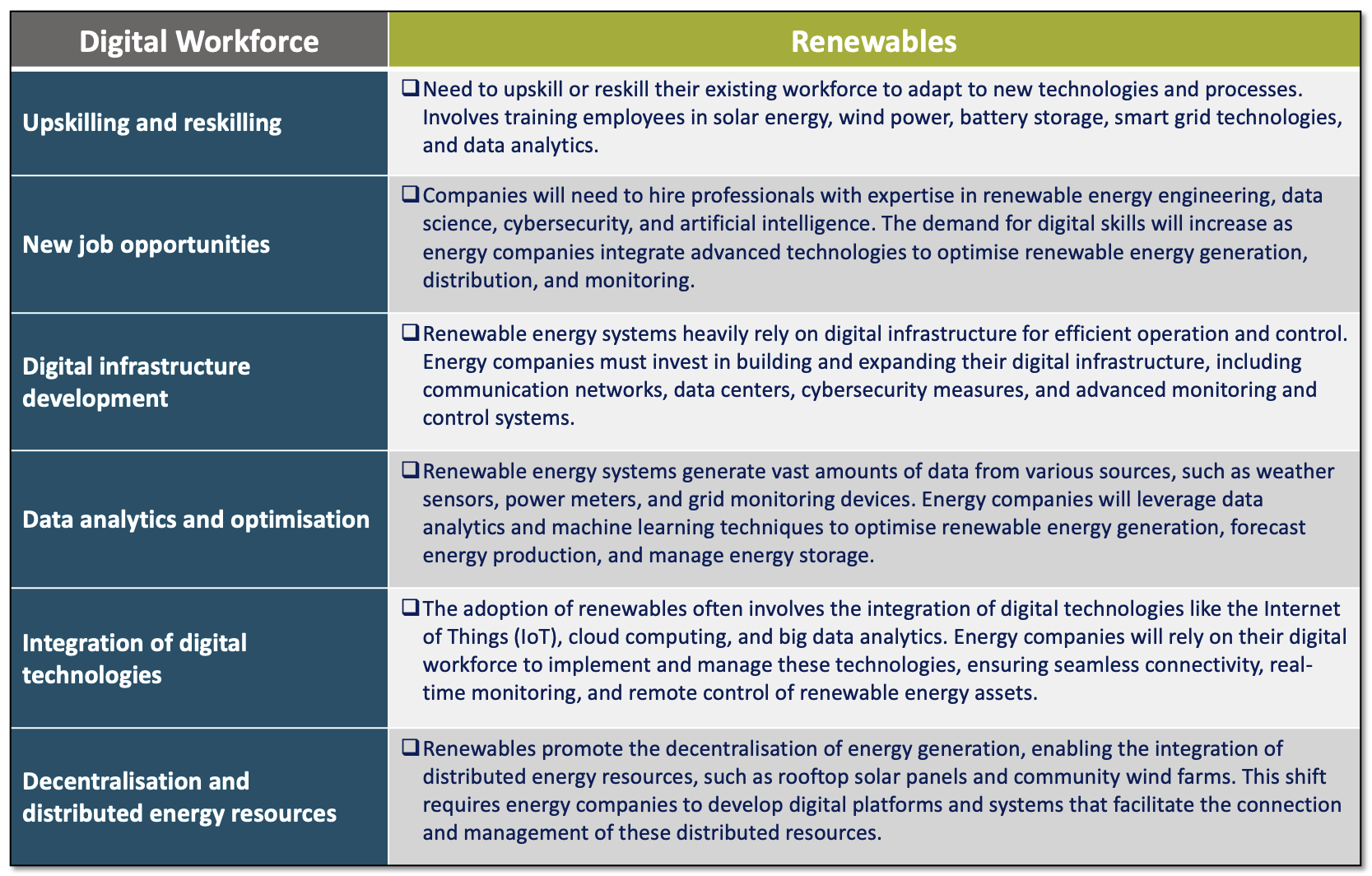
As the renewable energy industry grows and digitalisation continues to advance, there may be increasing overlap and convergence in the skill sets and technologies used by the digital workforce in both oil and gas and renewable energy businesses. The ongoing transition to renewables may also lead to the migration of digital talent from the oil and gas sector to the renewable energy sector, as demonstrated in the diagram below.
c. Migrating digital talent from oil and gas to renewables
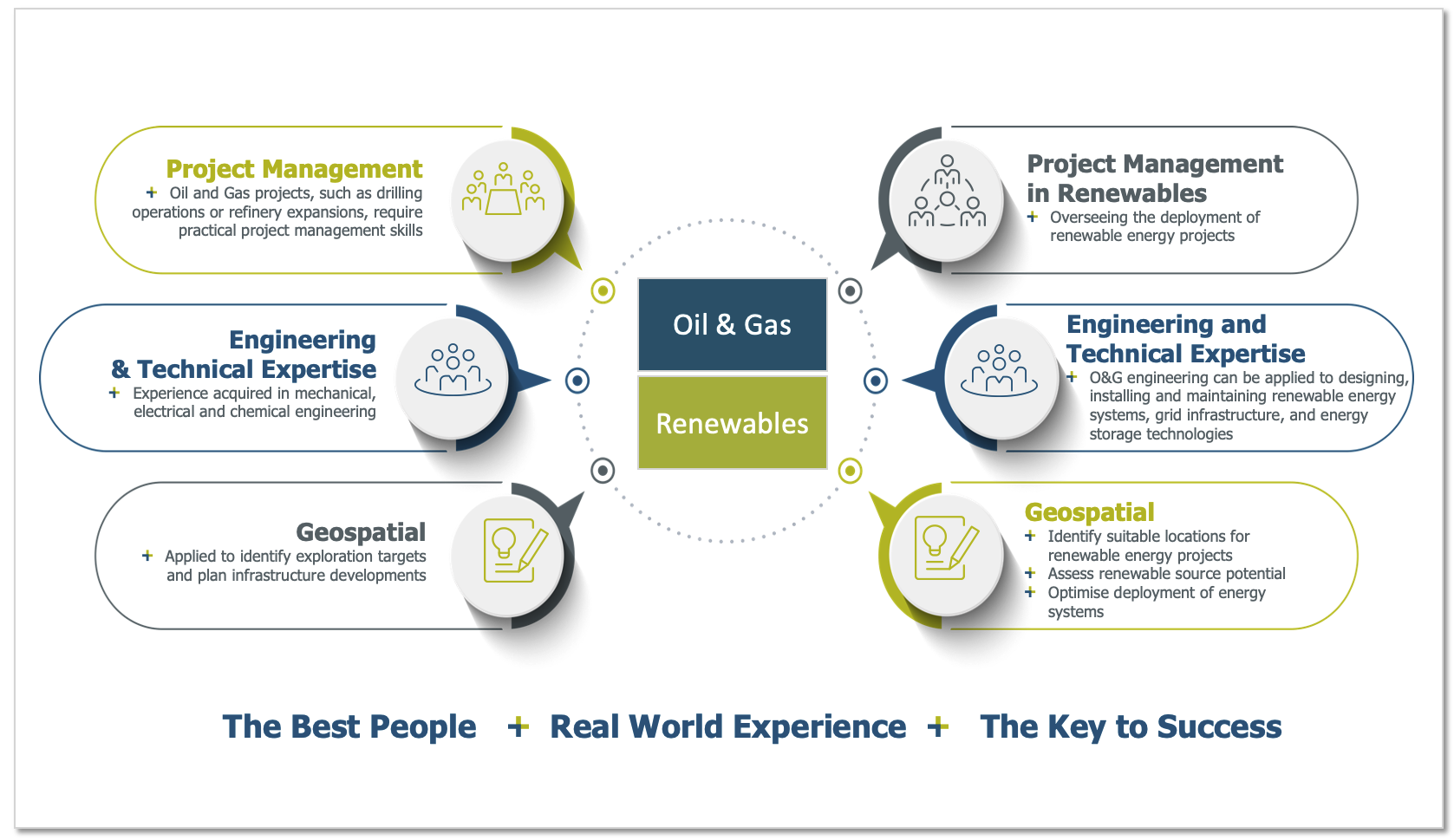
The transition of energy companies into renewables will drive the need for a skilled and adaptable digital workforce. Energy companies must invest in training and attracting digital talent to ensure a successful transition to a renewable energy future. The demand for skilled and experienced talent in the traditional oil business will still be required for the foreseeable future until the full transition to renewables is complete.
Part 3. How independent contractors will fair within the new digital workforce
a. Key effects of the change to the digital workforce and what digital skills will be in demand in the near future
The transition of energy companies into renewables can also have positive implications for independent contractor labor.
As energy companies adopt renewable technologies, there is likely to be an increased demand for independent contractors with specialised skills in areas such as solar installation, wind turbine maintenance, energy storage system installation, and smart grid integration. Conversely, there will be an increased demand for digital technology skills for implementing, integrating, and maintaining these new technologies. Skills in Digital areas such as Program and Project Management for digital implementations, experienced domain and technology experts in IoT, Cloud, Data Management and Data Engineering, GIS, Digital Twin, and so on. This can provide independent contractors with flexible work arrangements and the ability to take on different projects based on their expertise and availability.
The transition to renewables often comes with changing regulations and compliance requirements. Independent contractors with expertise in navigating and adhering to these regulations can play a valuable role in helping energy companies to meet the necessary standards.
The renewable energy industry requires collaboration among various stakeholders, including energy companies, technology providers, and independent contractors. Independent contractors may find opportunities to collaborate with renewable energy companies to deliver comprehensive solutions to clients.
The energy transition is ongoing, and digital technologies are becoming increasingly integral to the sector. Some energy companies may prioritise building an in-house digital workforce to foster long-term digital capabilities, innovation, and adaptability. They may invest in developing talent, upskilling existing employees, and creating a culture of digital transformation.
Energy companies might choose to have a core staff digital workforce while complementing it with digital contractors for specialised or temporary requirements. As the energy sector continues to evolve and digitalisation becomes more pervasive, energy companies will increasingly rely on a combination of both staff and contractor digital workforces to achieve their digital transformation goals efficiently and effectively.
Part 4: How is E+P preparing to adapt to the change and attract the talent required for both sides of the transition?
What does being a part of the digital landscape in the energy transition mean?
It means leveraging cutting-edge technologies to revolutionise generating, distributing, and consuming energy. It means using data-driven insights to optimise efficiency, reduce costs, and maximise renewable energy integration. It means pioneering the digital revolution that will reshape the energy landscape. Embrace the power of digital innovation, shape a sustainable future, and lead the charge toward a greener tomorrow. Be the driving force in accelerating the energy transition through the limitless possibilities of the digital workforce.
With years of experience consulting within oil and gas and access to a network of exceptional digital experts, E&P is effectively supporting renewables clients by transferring learnings and best practices to solve new digital transformation challenges. As mentioned in Section 2b, there are several areas where these skillsets and experience overlap, to name a few, in Project Management, Engineering and Technical expertise, and GIS. Within these disciplines are specific sets of activities E&P is placed to assist with this transition, for example, predictive maintenance, digital twin, planning, and executing large-scale offshore engineering projects.
At E&P, we are well-positioned to continue supporting the traditional hydrocarbon energy business, the transition to new energy, and the forward step into renewables. Our track record in attracting and caring for digital domain consultants speaks for itself, and we are proud to be working with agile teams of exceptionally talented consultants to drive growth and excellence across the full spectrum of the global energy industry.
Authors:
Wilson Rincon - Operations Lead, E&P Consulting
Responsible for establishing a seamless operation at E&P where the teams can focus on excellence, value generation to clients, and the pursuit of continuous growth, while working with the client's organisation to implement sound contractual and financial models to benefit the partnership.
Teresa Parks - Senior Recruiter, E&P Consulting
Teresa is responsible for recruitment and guaranteeing successful placement of IT/Digital Energy professionals globally for E&P Consulting. With 25+ years of experiences in the IT/Digital Energy industry, Teresa is skilled in discovering and connecting talent with businesses in need of their specialised skills within the energy industry.



